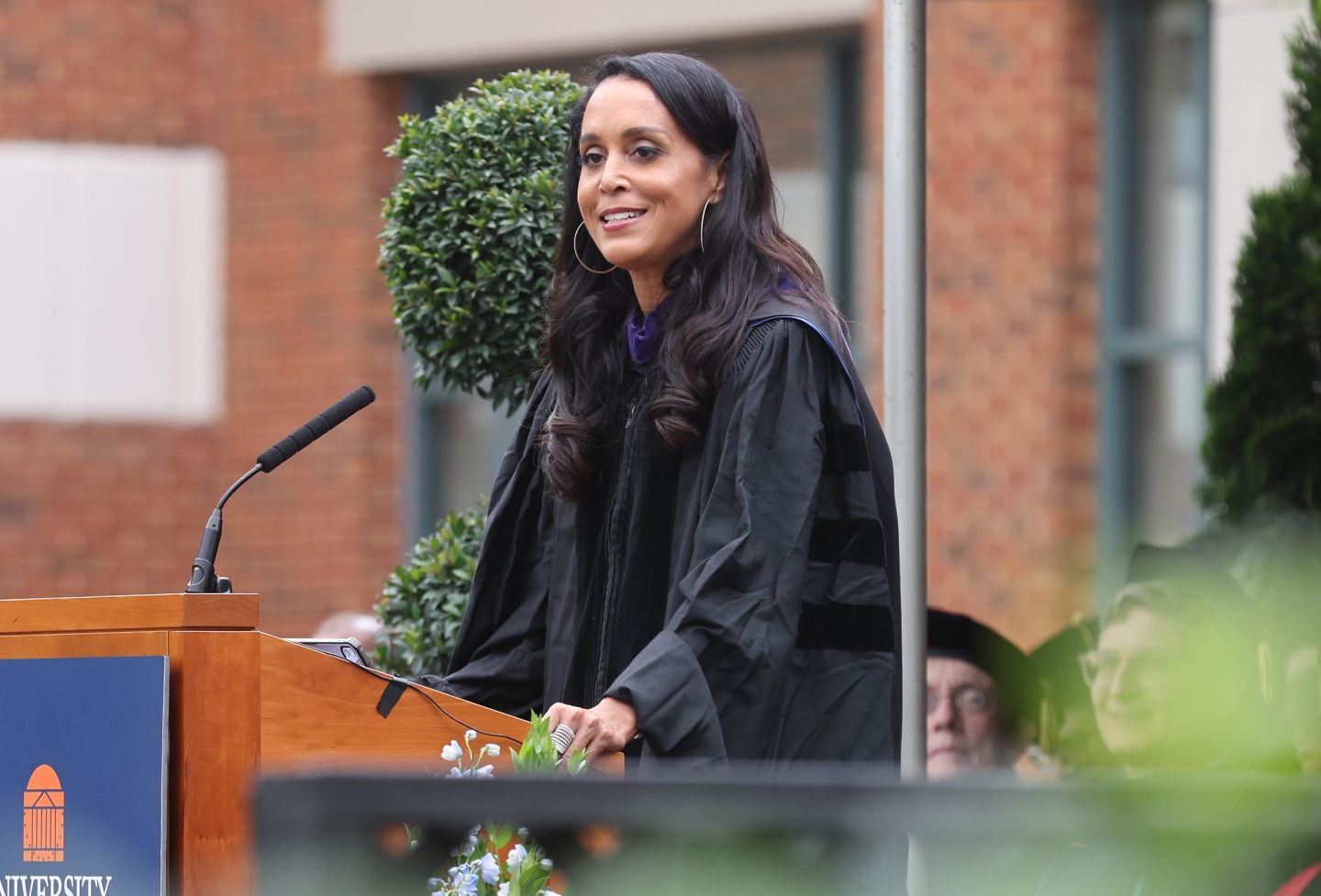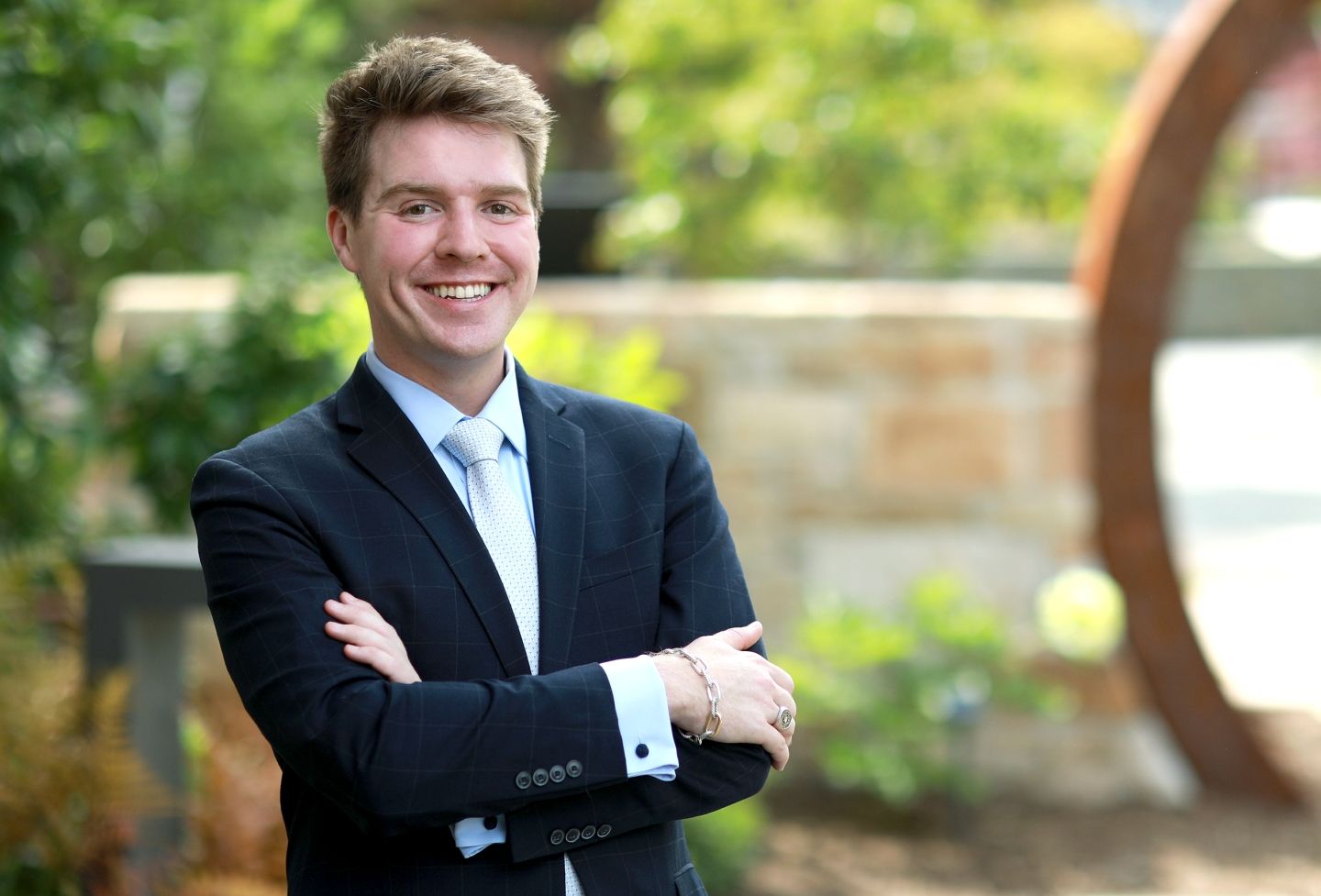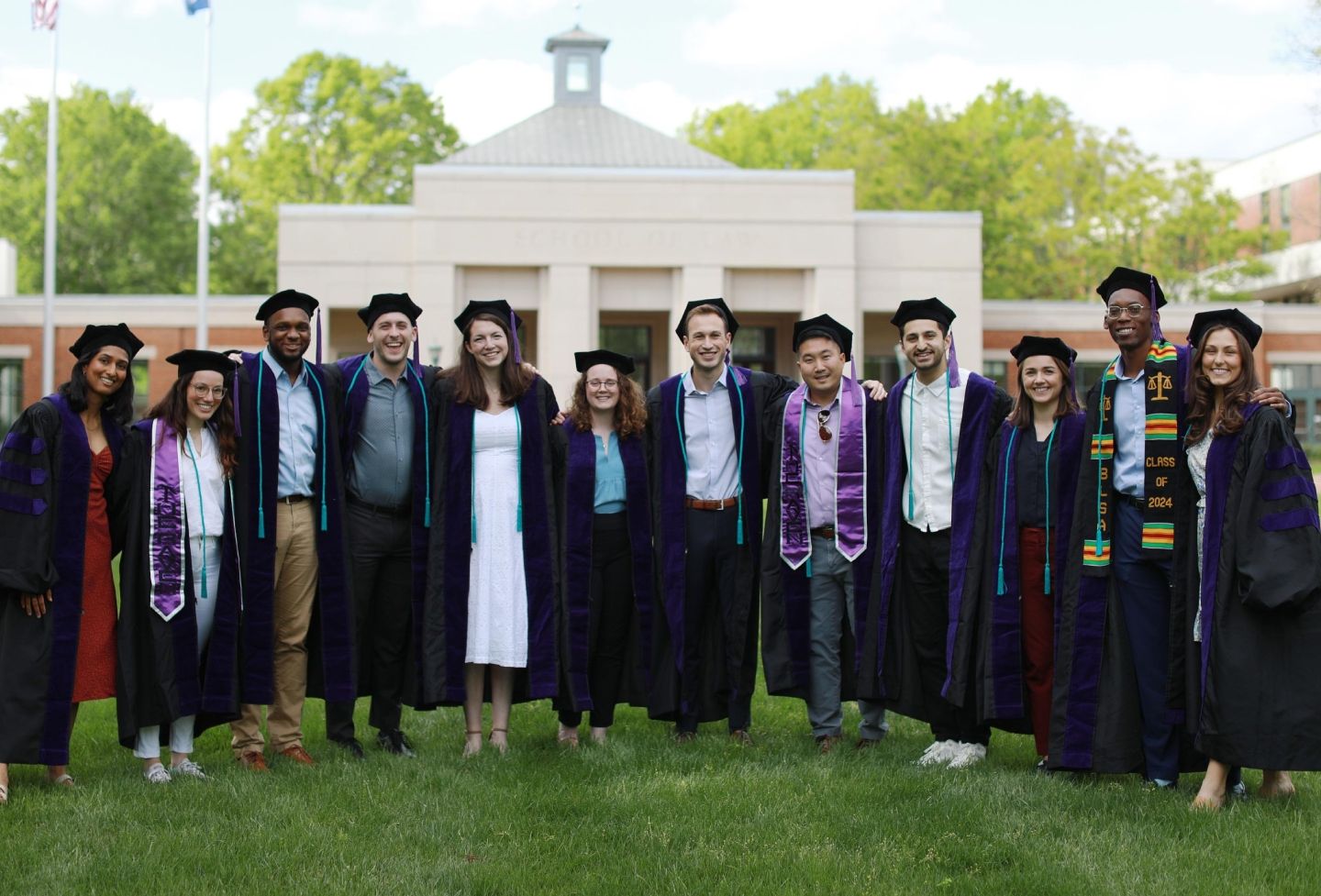Ben Saul, a rising second-year student at the University of Virginia School of Law, has felt at home in the classroom throughout his life — either taking notes with classmates or teaching at the blackboard.
The Greenwood, South Carolina, native and Truman Scholar earned an Ed.M. in learning and teaching from the Harvard Graduate School of Education, and graduated summa cum laude with a B.A. in political science from Furman University.
At UVA Law, Saul is the incoming president for Child Advocacy Research and Education, and a pro bono volunteer with the Legal Aid Justice Center’s JustChildren program, assisting with client intake on issues ranging from special education to student discipline.
In our occasional series “Star Witness,” Saul talked about what he learned and grew to appreciate as a teacher before coming to law school.
Tell us something about your life before law school.
For three years, I taught sixth grade math at a Title I middle school in Greenville, South Carolina. Most teachers will tell you that your first year of teaching is the most challenging, and mine was certainly no different. However, at the end of my first semester, the percentage of my students who exceeded expectations on MAP testing increased by 100 percent. That early success taught me that the challenge was worth it, and I was making a difference.
Before teaching, I worked at an education nonprofit, in which I was responsible for grant writing and a summer reading program. I also interned at the U.S. Department of Education in Washington, D.C., where I assisted with national outreach for the Affordable Care Act.
Why law school?
As a teacher, I most enjoyed the challenge of learning how to present complex topics in clearly understandable ways. I hope to transfer those teaching skills to a future legal practice, where I can counsel clients to navigate complex legal issues.
Tell us more about your interest in education and teaching.
Three of my former teachers strongly influenced my decision to go into teaching. My third-grade teacher, Mrs. Adams, instilled a love for learning. My middle school English teacher, Ms. Blackmore, used poetry to help turn a shy adolescent into a confident public speaker. And my high school math teacher, Mr. Wieters, taught me that a caring spirit, along with a little humor, can have a lasting impact.
I began my career as a classroom aide at Scott’s Branch High School in Summerton, South Carolina. Scott’s Branch is a civil rights treasure because of its defining role in Briggs vs. Elliott, the first of five desegregation cases consolidated into Brown v. Board of Education. The moral courage of Scott’s Branch parents helped end the Deep South’s Jim Crow era, but every day I saw that racial and socioeconomic inequality persisted. Working daily with students in this forgotten community helped cement my life’s mission to drastically improve educational opportunities for vulnerable youth.
What’s something your classmates don’t know about you?
My wife is a high school Spanish teacher with Charlottesville City Schools, and our daughter is in a Spanish-immersion program with Albemarle County Public Schools.
What’s next for you?
This summer, I am a Pro Bono Scholar with the Washington, D.C., office of Akin Gump Strauss Hauer & Feld LLP. As a Pro Bono Scholar, I am interning as a law clerk with the Knowledge Is Power Program network of more than 242 free, open-enrollment college preparatory public charter schools. During the month of July, I will be joining Akin Gump’s summer associate program. And in August, I will be spending three weeks as a summer associate with Wyche, P.A., in Greenville, South Carolina.
Founded in 1819, the University of Virginia School of Law is the second-oldest continuously operating law school in the nation. Consistently ranked among the top law schools, Virginia is a world-renowned training ground for distinguished lawyers and public servants, instilling in them a commitment to leadership, integrity and community service.


